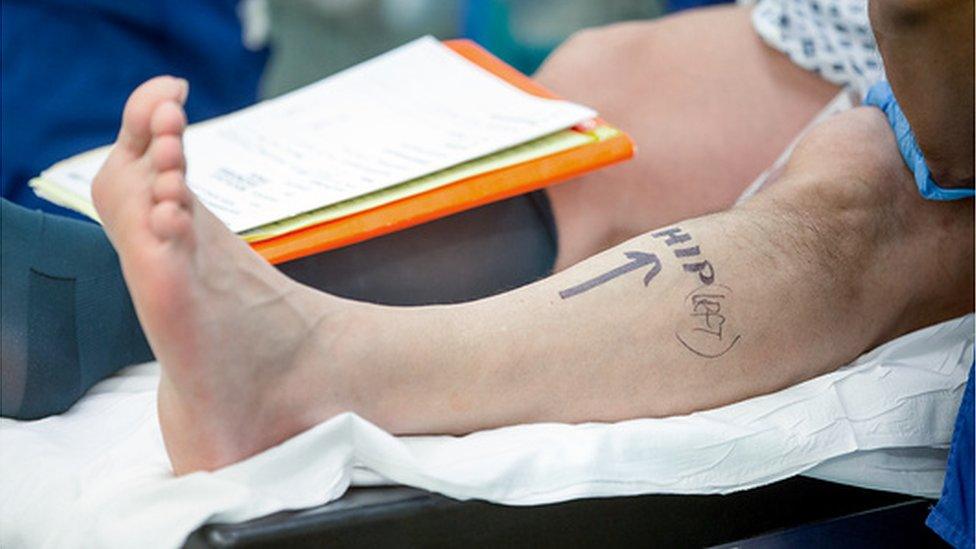How bad is the NHS postcode lottery?
- Published

There has been much talk about whether more of a "postcode lottery" has opened up for NHS patients.
Recent revelations about IVF provision, highlighting major variations around England and more extensive care in Scotland and Wales, added to the debate.
Financial pressures have led some local health commissioners to restrict what services they offer patients.
Now a new analysis of publicly available data, external reveals diverging trends in England for a range of procedures, including colonoscopy and hip operations. The research has been carried out by the Medical Technology Group, an organisation with members including research charities and product suppliers.
Ministers have called for more transparency to allow patients to make their own judgements on the quality of care offered by the NHS in their local area. The report authors argue that there are "huge amounts of data" online and it can be difficult for people to get an overview on how their local clinical commissioning group is performing. They use sources including the NHS Atlas of Variation to highlight what they argue are "huge " levels of variation which are "unacceptable".
Examples quoted include two neighbouring commissioning groups in the south of England with very different outcomes for CT colonoscopies - an important procedure for diagnosing or giving the "all clear" for bower cancer. In one of the areas, only one patient per 100,000 of population was referred for the procedure, while nearby it was 590 patients per 100,000.
There is wide variation in the number of hip replacements in different areas - with one referring more than 200 patients per 100,000 residents for operations and another seeing fewer than 100 treated overall.

The research suggests that patients in some parts of the North of England are receiving more timely treatment than their counterparts in the South. Commissioning groups in London and the South East scored the lowest marks.
Demography explains some of the variations - the number of elderly patients is an important consideration, for example. Some local health economies might be better than others at treating people out of hospital and keeping down the numbers referred for hospital treatment. Even so, the report authors argue that the range of outcomes is hard to explain. They say NHS England should step in if there is evidence that local commissioning policies have reduced the number of people receiving treatment and there should be a tribunal mechanism if people question those policies.
NHS England said the data had all been previously published and there were efforts to help local areas identify which treatment differences were linked to local need. NHS Clinical Commissioners, representing local health groups, said they were working to understand where variation might be unwarranted. A spokesperson added that there were rising financial pressures and local health leaders were having to "make increasingly hard decisions to make sure that they provide the patients and the populations they serve with the best possible healthcare within the overall resources they have."
The postcode lottery debate goes back many years. What's relatively new is the range of data available for those who can dig it out. The fragmented nature of the NHS in England with local commissioners making their own decisions on what to offer patients has accelerated the trend.
- Published11 August 2017